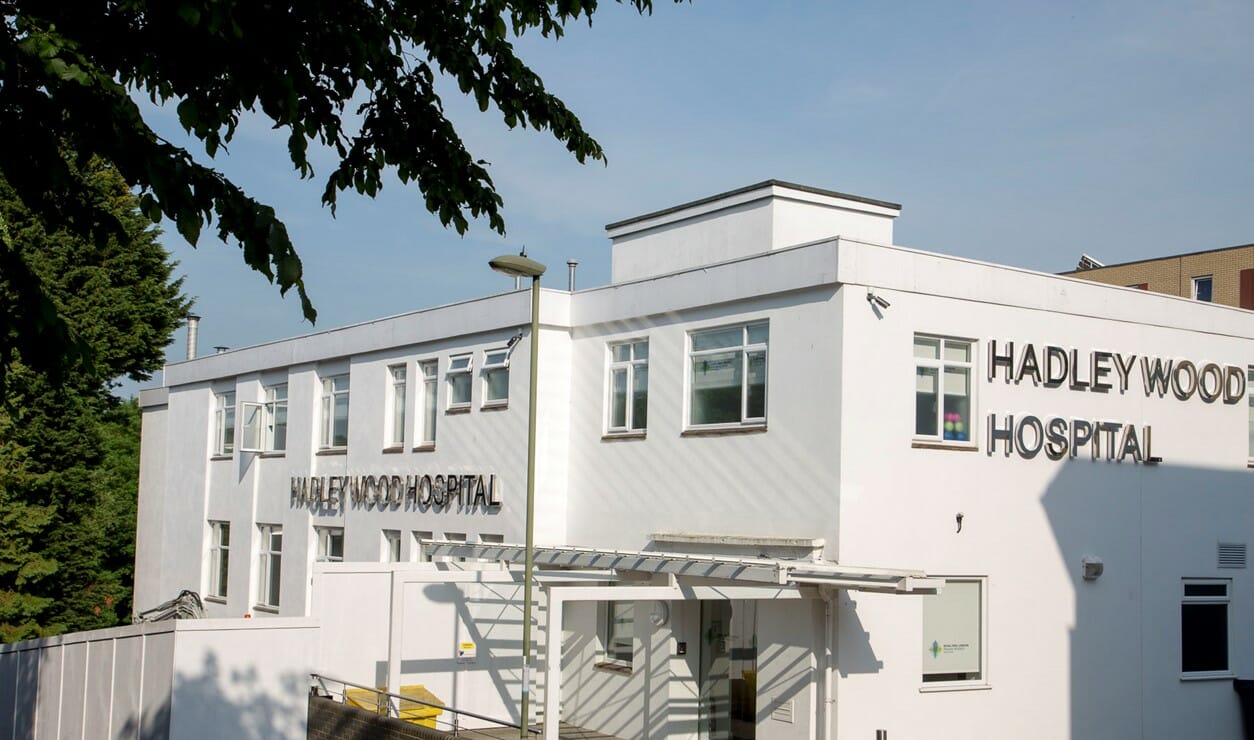Haemorrhoids

Our private Haemorrhoids services are provided at the Hadley Wood Hospital, High Barnet.
To find out more about our hospitals click here:
Hadley Wood Hospital offers a number of treatment options for haemorrhoids, commonly known as ‘piles’.
What causes haemorrhoids
Haemorrhoids, commonly known as ‘piles’, are swellings that appear in and around the rectum and anus, due to enlarged blood vessels.
They’re often seen in people who are prone to constipation and more likely to strain to pass bowel movements, and are also more common in people who are overweight and spend a lot of time sitting down. Pregnancy can also cause haemorrhoids, due to the increased pressure on blood vessels in the pelvic area.
Symptoms
They don’t always cause symptoms but can cause bleeding during bowel movements, as well as itching and discomfort. More severe cases can be painful and result in significant discomfort while going to the toilet or sitting, for instance.
Haemorrhoid injections
Non-surgical treatment options for haemorrhoids also include haemorrhoid injections, traditionally known as ‘sclerotherapy’. Sclerotherapy injections involve injecting a chemical solution into the affected blood vessels in the rectum. They work by numbing the nerve endings in the area and also cause the haemorrhoid tissue to gradually harden, meaning they begin to shrink. It can take around 4-6 weeks for the full effects to be seen.
Minimally invasive haemorrhoid treatment [THD]
If haemorrhoids are causing you any ongoing pain and problems and conservative treatments, such as creams and suppositories, haven’t helped, or your haemorrhoids have become severe, the expert team at Hadley Wood Hospital offer a range of treatment options. Many of these have good long-term results too, limiting the likelihood of your haemorrhoids returning in the future.
Transanal Haemorrhoidal Dearterialisation (THD) is a minimally invasive surgical procedure, during which your surgeon will use a very fine doppler ultrasound probe to carefully identify and locate the arteries supplying blood to the haemorrhoid. The arteries are then very gently sutured (stitched up), cutting off the blood supply to the haemorrhoid. THD is generally associated with very good long-term results, as well as a range of other benefits. It can usually be carried out as an outpatient procedure and post-surgery discomfort is generally minimal. You should be able to return to work and regular daily activities after a day or two.
What does haemorrhoid surgery involve?
Haemorrhoids, commonly known as ‘piles’, are swellings that appear in and around the rectum and anus, due to enlarged blood vessels.
Traditional haemorrhoid surgery involves carefully surgically removing the haemorrhoids. The procedure is carried out under general anaesthetic but you should be able to go home the same or next day. Most people need one or two weeks off work afterwards, depending on the extent of the surgery, and pain relief medication can help with the discomfort while your body heals. The surgery has high success rates with minimal chances of the haemorrhoids returning in the future, compared with non-surgical treatments.
